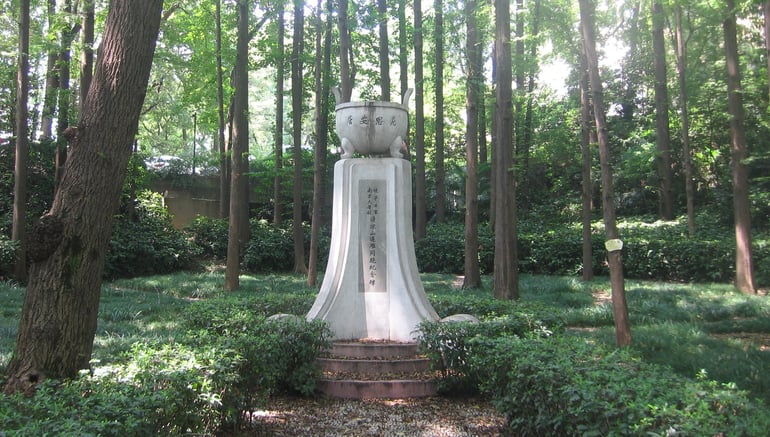
Today marks the 80th anniversary of the Japanese Army’s invasion of Nanjing, the capital of China in 1937. This is a difficult moment to observe—one that I struggle with. How should I and other educators mark this moment? What lessons should our students draw from it? It is not a celebration but rather a somber memorial of mass violence of a magnitude that is still difficult for our minds to grasp.
This year also marks a personal anniversary for me with Nanjing. Ten years ago, when Facing History began to study the history of these atrocities, I knew so little of what had happened there. At that point, I had been a high school history teacher for eight years. I had worked on the teaching of World War II and the Holocaust since 1999 but I only had a vague understanding of the war in the Asia-Pacific region and did not have serious knowledge of the atrocities at Nanjing or the implications it has for our young students to learn from.
I have been fortunate in these last 10 years to be part of the Facing History community, which has allowed me to deepen my learning about it. I met secondary school teachers in China who were teaching this history. I was able to visit the museum in Nanjing and meet survivors. Through the work of my former colleague, Fran Sterling, who researched and published our resource book, The Nanjing Atrocities Crimes of War, I met scholars in the US, Canada, and the UK who have been educating and preserving the memories of this difficult history.
This study has marked me profoundly by increasing my own sensitivity and understanding of war crimes. Ben Ferencz, the chief prosecutor at the Nuremberg Trials and war crimes investigator, wrote in his foreword to the resource book that: “It must be recognized that there has never been a war without atrocities.” I find this sentence even more troubling as I re-read it now. We are witnessing so many atrocities across the globe today. The war in Syria, which feels so far from my daily life, has revealed many examples. The terrorist attacks targeting innocent civilians in their daily lives and footage from the liberation of Raqqa, Syria earlier this year, reminded us of the inhuman mass killings carried on by ISIS. The atrocities of forced migration that we have witnessed in the last two to three years and, more recently, the forced expulsion and ethnic cleansing of the Rohingya in Myanmar. All of these examples today are why we must all pause for this anniversary.
As educators, our task is not to fill students with ever-increasing stories of inhumanity with increasing cruelty, but rather to teach them lessons that reveal efforts to live beyond war. That, in fact, we can live in a world that protects the lives of civilians during conflicts. That it is possible to be more humane. We can, as we did in the aftermath of Nanjing and World War II, develop and hold onto international principles of justice, which hold perpetrators accountable for their crimes and help us deter future acts of atrocities.
This is not “pie-in-the-sky” wishful thinking. This is the history of our post-war world. We have done this. After the war, the world came together and, through the Tokyo and Nuremberg trials, the international community adopted a set of rules and international principles of justice. Our task as educators, as we observe the memory of what happened in Nanjing on that day 80 years ago, is to re-commit to teaching this history of action and engagement. These are the stories that will help our students avoid cynicism. For educators to honor the memories of what happened in Nanjing is a call to teaching young people the skills and dispositions they need to nurture and protect civil and democratic societies that are committed to shared principles and values.
Want to explore the Nanjing Atrocities with your students? Use our resource, The Nanjing Atrocities: Crimes of War, to place the this history within the larger context of World War II in East Asia while challenging students to consider the complex questions it raises about wartime violence, justice, and memory.
Photo Credit and Caption:A mass burial ground for the victims of the Nanjing Massacre, Nanjing City, Jiangsu Province, China. By Zhou Guanhuai - Own work, CC BY-SA 4.0, https://commons.wikimedia.org/w/index.php?curid=62127445


